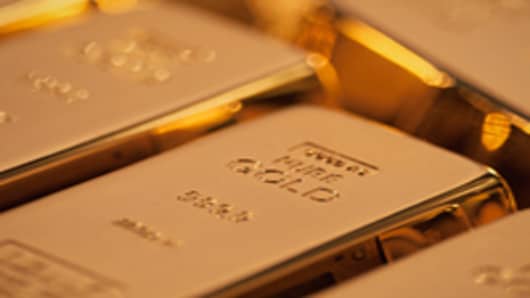Bullion traders are preparing for one of the largest transfers of physical gold in recent history after Hugo Chávez, Venezuela’s president, ordered the country’s gold reserves to be returned to Caracas.
Venezuela’s central bank is the world’s 15th largest holder of gold, with 365.8 tonnes, of which some 211 tonnes, worth $12.3bn, are held overseas, according to a proposal for the transfer from the Venezuelan central bank and finance ministry.
Gold traders and logistics specialists said the transfer of 211 tonnes of gold – about 17,000 standard 400-ounce bars – would represent one of the largest moves of physical gold in decades. While billions of dollars worth of gold is traded every day, only a tiny proportion of it moves from vaults in London, New York and Zurich.
Mike Cundy, director of security for G4S, which along with Brink’s dominates the bullion logistics industry, said: “This would be a very big one – I can’t think of another case where we’ve moved that sort of thing.”
A large proportion of the gold is in London, according to figures in the proposal document, with the Bank of England holding 99.2 tonnes. The Venezuelan central bank also has gold deposit accounts with Barclays, HSBC and Standard Chartered that would be delivered to the Bank of England, traders said.
Mr Chávez said on Wednesday night that he had signed the plan to repatriate at least 90 per cent of Venezuela’s gold reserves as well as moving foreign exchange reserves out of US and European banks. The country could still reverse its decision at the last minute, analysts warned.
The move is part of a broader strategy to decrease dependence on countries that Venezuela considers hostile: the proposal document cited the possibility that the US Federal Reserve could freeze dollar assets.
Countries such as Iran and Libya, which have been subject to international sanctions, have in the past repatriated gold reserves, traders said. Libya’s foreign reserves were frozen after war broke out this year. “There is a growing preference among many different communities in the gold market to have their physical gold at home,” said Edel Tully, precious metals strategist at UBS.
Venezuela would need to transport the gold in several trips, traders said, since the high value of gold means it would be impossible to insure a single aircraft carrying 211 tonnes. It could take about 40 shipments to move the gold back to Caracas, traders estimated.
“It’s going to be quite a task. Logistically, I’m not sure if the central bank realises the magnitude of the task ahead of them,” said one senior gold banker.
As Venezuela was preparing for the repatriation in recent months, bullion stored in the Bank of England occasionally traded at a small but unusual premium to gold in other London vaults. Traders said the most likely explanation was that the Venezuelan central bank had been converting short-term gold deposits into physical gold.
Mr Chávez has rejected doubts over whether the Venezuelan central bank has sufficient vault space to store 365.8 tonnes. “If there isn’t enough room to store the gold in the central bank vaults, I can lend you the basement of the Miraflores presidential palace,” he said.


